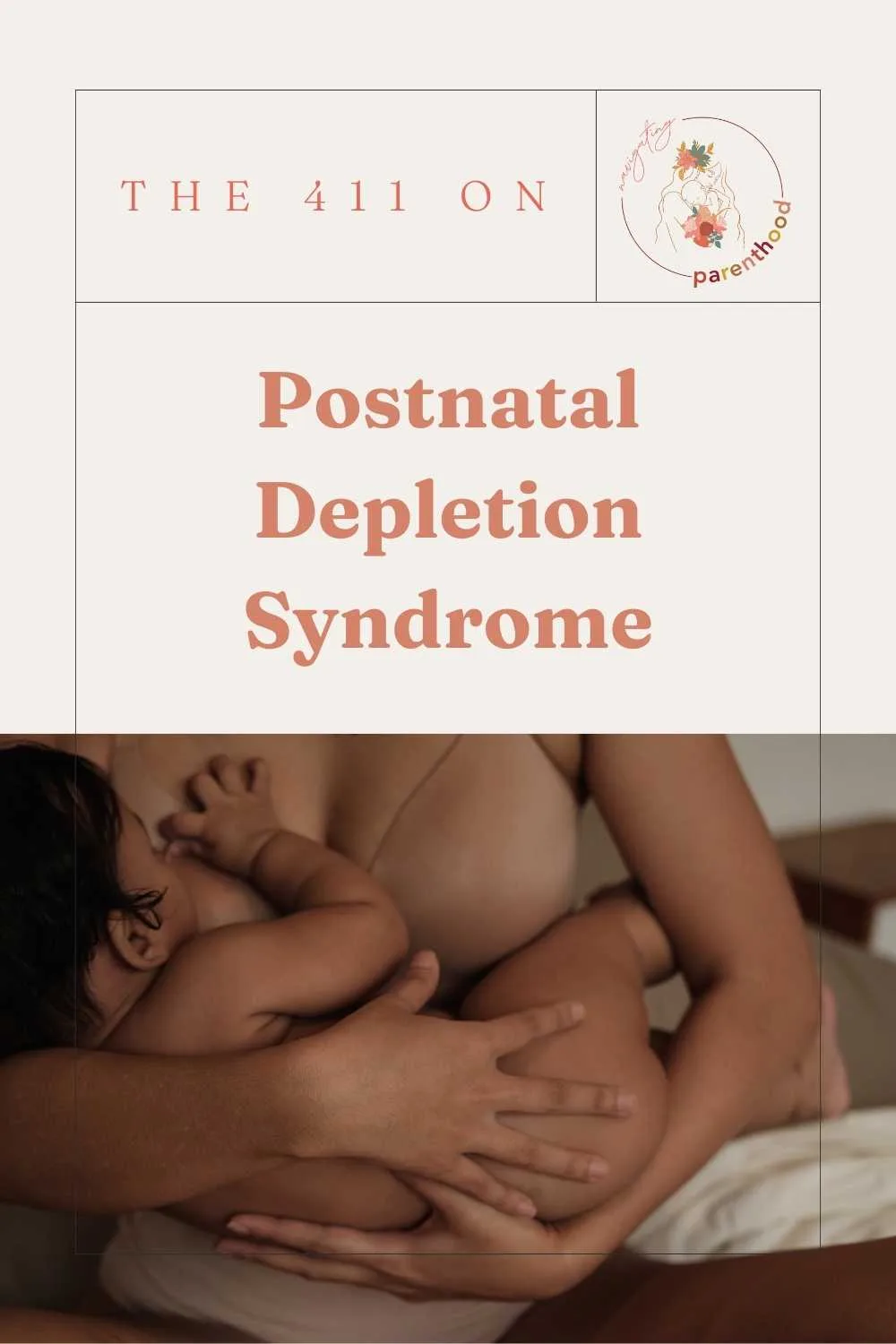A Hidden Postpartum Crisis: The 411 on Postnatal Depletion Syndrome
In today’s fast-paced world, new mothers often face numerous challenges in nurturing their babies while juggling multiple responsibilities. What is often overlooked, however, is the toll this can take on their own physical and mental well-being. Enter postnatal depletion syndrome, a hidden health crisis that affects countless women worldwide. Whether you’ve heard about it before or not, postnatal depletion isn’t uncommon. In fact, Naturapth & Ayurvedic Doula, Kate Harrison, shares that many mothers not only experience depletion after birth but while pregnant! Let’s delve into the realm of postnatal depletion syndrome, discuss its impact on women’s health, and explore strategies for prevention and recovery. By shedding light on this hidden health crisis, Navigating Parenthood aims to empower new mothers to prioritize their well-being and embrace self-care as an essential part of their motherhood journey — even before they conceive.
Disclaimer: This post is NOT medical advice and is no substitute for visiting a doctor. Everything shared on NavigatingParenthood.com and within this post is meant as an educational tool to close the “I wish I knew” gap. Please share your new knowledge and any questions with your doctor or specialist.

Postnatal Depletion Syndrome and its Causes
What is postnatal depletion and what are some causes? Pregnancy and childbirth are significant events in a parent’s life that require a considerable amount of energy and nutrients to support both the birthing parent and the growing baby. An expecting mother’s body sends all necessary nutrients to the placenta for the baby’s growth, which means if a mother isn’t getting the nutrients needed in her daily diet, the placenta is getting them from any available stores in the body, leaving mom depleted. Dr. Oscar Serrallach coined the term “postnatal depletion” to describe this in his Goop Press book, The Postnatal Depletion Cure.
Lack of sleep, poor nutrition, and hormonal imbalances can also contribute to the development of postnatal depletion syndrome simply because they all impact nutrients and stores. According to Joy Stephenson-Laws, founder of Proactive Health Labs, your risk for having nutritional deficiencies and imbalances after giving birth may be higher if you are nursing and/or have had more than one child over the past year. “Postnatal nutrient depletion is very common, with over half of new moms suffering from it at some point after giving birth,” she adds.
Recognizing Postnatal Depletion Symptoms
If a new mom’s lack of nutrients is not addressed, she can experience anxiety, extreme fatigue, mood swings, brain fog, hair loss, and other health issues due to postnatal depletion. (Here’s one mom’s personal postpartum depletion story.) Many new mothers may dismiss these symptoms as a normal part of the postpartum period, but it’s important to recognize that they may indicate a more serious issue and can also leave mothers susceptible to illness.
One of the more well-known symptoms of nutrient depletion is postpartum depression. Joy shares that nutrient depletion may increase your risk for postpartum depression but that it’s important to recognize that postpartum depression and postnatal depletion are two very different things that postpartum parents face. Recognizing and addressing any symptoms you may have and advocating for yourself is essential for getting help — consult with a healthcare professional who specializes in postpartum care to provide the necessary support and guidance. If you’re unsure if you have postnatal depletion, get a thorough nutrient test.
We’re screaming “Self Care!!!!!” at new moms without actually addressing the elephant in the room — the severe physical depletions and the changes that are expected to happen after giving birth that literally no one is helping moms address.
Alison Boden, Motherwell Nutrition
Longevity of Nutrient Depletion
Wondering how long postnatal depletion lasts? Unfortunately, we can’t give you a specific answer. The length of time postnatal depletion lasts for a new mom varies based on each mother’s individual nutrient needs. In general, if a new mom doesn’t replenish these nutrients after her baby is born, it makes postpartum recovery a bit more difficult. Normally it can take years to recover from pregnancy, but if a new mom hasn’t corrected her nutrient deficiencies and imbalances that recovery time is even longer — 10 years or more!
Natural Remedies and Treatments for Postnatal Depletion Syndrome
There are several natural remedies and treatments that can help alleviate the symptoms of postnatal depletion syndrome with the help of a practitioner. One is nutrient-dense foods — especially the nine nutrients commonly lost during pregnancy that are needed for postpartum recovery. Regular exercise, adequate sleep, and stress reduction techniques, such as infant massage time, meditation, and yoga can also contribute to the recovery process.
Find some of the best postpartum meal delivery options, here!


